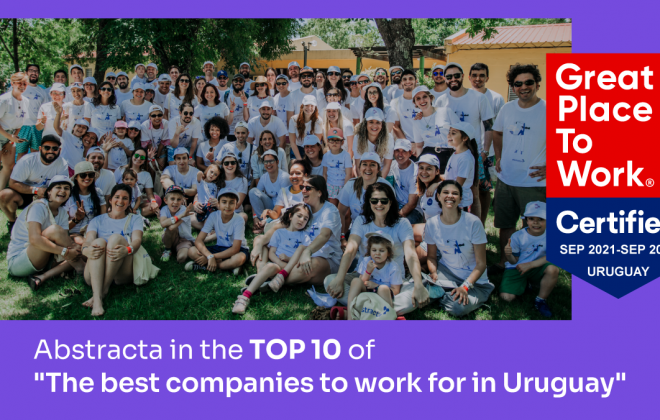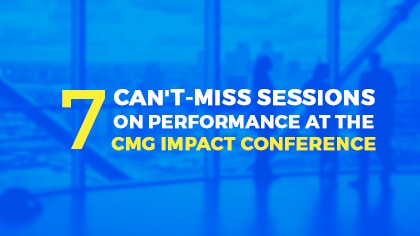The job search is a time when many emotions come together, whether we are unemployed or not. It is important to take this process as a learning opportunity. In this article, we give you all the tips and information you need for software tester interviews.
By Stephanie Gordiola
Surely, we agree that it is important to do our best to get that job we long for, but let’s not forget something: it is crucial to take advantage of the journey to incorporate all possible learnings to get one step closer to the opportunity you want.
Always remember that the choice is mutual. The organization you want to join is looking for the right person for a position, and you are looking for the right place to work and develop.
Showing intellectual humility and doing your best is fundamental at this stage, but it is also important to remember that you are not only being evaluated, but you are also evaluating the organization during the interview.
In this article, we will focus on software tester interviews and how to prepare for them. If you managed to get an appointment for an interview, you have probably already passed the stage of preparing a good CV and enhancing your professional profile. Let’s go directly then to this first meeting with those who could be your future colleagues or employers.
Before the Interview
1️⃣ Get Informed
Going to an interview with information about the organization you are applying for shows interest and proactivity. You don’t need to know every detail, but you do need to know what it does, anything new, and it adds up even more if there is some aspect that generates particular interest for you.
It is common that when someone is actively looking for a job, he/she applies for multiple offers, so it is essential to show that we are clear about the company when we go to the interview.
If the offer for which you are applying has a detailed description of the role, read it again. It is important that you understand in detail what is involved, and what tools and knowledge are needed.
If there are tools that you do not know but are not exclusive to the position, it will be very useful that you also review what they consist of to have a previous idea and, in any case, you can express your willingness to incorporate them.
2️⃣ Review your Profile and Prepare what you want to Highlight
Once you have already informed yourself about the organization you are applying to, review your profile and CV to decide what you would like to focus on in this particular opportunity.
While the person interviewing you has access to your CV and probably your LinkedIn profile, the interview is an opportunity for you to introduce yourself and give a brief overview of your career from your own narrative.
You will be able to highlight what you think is most suitable for the position you are applying for, in consideration of the company, its activities, objectives, and purposes.
On the other hand, it is relevant to analyze which aspects of your personality can be valuable for the role. This way, you will be able to reduce improvisation and lower anxiety at the time of the interview.
It is important that you evaluate what learnings from the previous work experiences you have managed to channel may be valuable for this new role, whether or not you have experience in the area to which you are applying.
For example, if you have previous experience in tasks that require a lot of attention to detail, excellent levels of organization, working with a computer system, or working in a team, it will surely leave you with very valuable tools for a tester role. The same happens with the projects of different IT careers, where the skills to occupy different roles in a team are tested, such as decision making, planning, and execution, among others.
All of this is valuable learning.
In tester roles, there are certain transversal skills that are highly valued and that we do not learn in a course, precisely because they are transversal, but they are part of our personality or a consequence of life learning.
So, whether or not you have experience as a tester, analyze what you can say and do to demonstrate non-technical skills that are necessary for testers.
#PROTIP 👉 Some of the most valued and necessary aspects of the role of software tester are: the ability to adapt to different and changing contexts (due to possible project changes and their needs), organization, teamwork, communication, attention to detail, critical thinking, flexibility, power of observation and continuous learning.
When a person has no previous experience, apart from training and technical knowledge, The focus is more on attitude, curiosity, openness, and flexibility.
3️⃣ Organize your Logistics
Try to comply with the agreed date, time, and modality of the interview.
#PROTIP 👉 In the IT world, punctuality is very important, sometimes even exclusive. It is better to arrive a few minutes early (no more than 5 or 10 minutes early either) than after hours.
If for some reason something prevents you from arriving on time for the interview, let the recruiter know as soon as possible. We can all have inconveniences, but if we take care of the communication we can maintain a good image before the person who is going to interview us. It is a good way to look after and respect the time of both parties.
If the interview is online, make sure you have the necessary resources beforehand, test the audio and camera. Have a plan B in case something goes wrong at some point.
Try to have a private and quiet place for the moment of the exchange. This way, you will avoid situations that will take you or the person on the other side out of focus. In case this is not feasible, try to comment on it at the beginning of the interview to generate empathy and show respect for the interview situation.
Interview moment
1️⃣If the Interview is Online, Turn On the Camera
Keep the camera always active. A remote interview without a camera will cause a lot of information to be lost and can hurt your candidacy.
2️⃣Make Eye Contact
Sometimes, out of awkwardness or insecurity, people avoid eye contact. Try not to do this as we communicate not only with our words but also with our posture, gestures, and looks.
3️⃣Ask What you Need
Don’t be afraid to ask questions. As long as it is in a respectful way, encourage yourself to ask anything that generates concerns or curiosity. It’s also a way of showing interest.
Some people wonder about the best possible attire for face-to-face software tester interviews. The answer is simple: in IT, the dress is usually casual.
5️⃣Tell What you’re Looking for
Whether it’s a job search for unemployment status, a job change search, or a first job search, it’s important that you get across what you’re looking for in the interview.
It is crucial that you are clear on what the focus is, whether it is the salary issue, the organizational culture, the dynamics of the tasks to be performed, the work modality, or a conjunction of all of these.
#PROTIP 👉 The ability to express objectives and ideas in a concise, clear, and simple way is highly valued in the role of a tester because they are necessary characteristics for the performance of the role. This clarity will not only be beneficial to achieving a better evaluation of your compatibility with the role and the company but will also demonstrate the communication skills essential in the role of a tester.
Some extra keys about software tester interviews:
✔️Evaluation of Languages (Generally English)
If the company you are applying to exports services to the United States, as is common in the IT industry, or is based in an English-speaking country, it is likely that in the interview they will want to know your level of spoken English.
It is not common to ask for certifications or diplomas since the aim is for the person to show that they can hold a conversation in English. If this is not your case, do not be afraid to say honestly that you do not consider yourself to have a level of English that allows you to hold a conversation. There are companies that also work with local clients and English is not a requirement.
However, if you have an intermediate level or higher, I always recommend that you try to respond to the conversation and see how it goes. It has happened to me that I interview people who don’t feel very confident in their English and when they are encouraged to converse I am pleasantly surprised.
✔️Addressing challenges
Something that we in recruitment need to know, to some extent, is your approach to challenges, problems, and unforeseen events, as they are a key element in working life.
The IT industry is characterized by being changeable, by the variety of projects, teams, and methodologies, so it is key to be able to think about how we stand in the face of difficulties or changes.
Therefore, during an interview with a software tester, it is common to ask about anecdotes related to challenges faced, in relation to how they were tackled and overcome.
Sometimes, we don’t manage to solve things in the best way. But if we manage to reflect and see things in a different way, we will have made progress. It is okay if we make mistakes, the important thing is to see what we do with them.
That’s why, when we talk about challenges, we usually ask the applicant if he/she would do something different today, precisely to be able to evaluate his/her capacity for reflection, to understand his/her predisposition to learn in the face of challenging situations.
In IT, a predisposition to constant learning and continuous improvement is highly valued. Therefore, in addition to telling how you faced a challenge, focus on what you learned from that experience.
In IT, we are not looking for perfect people who always do everything right. But rather people who learn from themselves, from their experiences, and from others. People who have the flexibility to adapt to different situations and manage to capitalize on their experiences in continuous improvement.
✔️Strengths and Weaknesses
On several occasions, we ask about strengths and weaknesses. I prefer to think about aspects that make us proud and aspects that we feel we need to keep working on.
#PROTIP 👉 In IT, being able to identify aspects that we need to keep improving is considered a great asset.
✔️Openness and Transparency
First and foremost, we are people, and everyone has their own particularities. In turn, just as there is a great diversity of people, there is also a great diversity of companies, with their different cultures and values.
That is why an important part of the interview for a software tester is to try to get to know the person beyond the role to which they are applying, to have more elements at the moment of defining their income, team, and type of project. But, above all, to know if you share values.
On the other hand, something we usually inquire about is the person’s preferences in terms of tasks, those that he/she enjoys the most, and also those that he/she prefers to avoid. In addition, it is common to ask about the most valued aspects of a workplace, and what is non-negotiable for the applicant.
Why all this? As I mentioned, there is a great diversity of people and a great diversity of companies. And the quest lies in finding the best possible matches for all parties.
My final but most important recommendation:
Breathe!
Every experience is part of our learning process. Whatever the outcome of your next software tester interview, you will be able to take something away from this occasion and you will be one step closer to the opportunity you are longing for.
So, take a breath, and try to enjoy it.
Do you want to work at Abstracta? Learn about the path to achieving it and our organizational culture in this article.
Follow us on Linkedin & Twitter to be part of our community!
Tags In
Related Posts
Abstracta featured in Uruguay’s Great Place to Work Top 10
Great Place to Work revealed the best companies to work for in Uruguay and we have been ranked #8th. Can culture be measured? Why is it important to do so? Find out everything and meet the companies that joined us in the TOP 10. We…
7 Can’t-Miss Sessions on Performance at the CMG imPACt Conference 2016
We’re attending one of the hottest conferences for performance professionals. You should too! Dubbed “the best performance conference ever” by respected performance guru, Alexander Podelko, the annual conference, CMG imPACt 2016, is taking place this November 7th through the 10th in San Diego’s not-so-secret hidden gem, La…
Search
Contents








